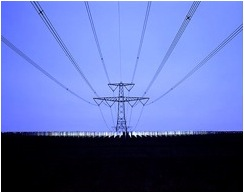The European Union has determined that the organic fraction of Municipal Solid Waste (MSW) is renewable and biodegradable. Consequently the cellulosic fiber represents around 50% of the waste generated by the average household. It has similar ratio in commercial and industrial wastes because of the high proportion of food processing in industry that requires disposal.

The organic fraction has the same calorific value as Scandinavian softwood (9.7kJ/kg) with moisture content of 35% – when dried to sub-5% moisture content this increases to close to 20kJ/kg – about half the value of natural gas! RCR can convert this material into ethanol using enzymatic hydrolysis – approximately 100 liters (41 US gallons) per ton of fiber.

The alternative is to use this fibrous material as a renewable fuel in a multi-fuel steam raising boiler to pass steam to a steam accumulator and in turn to provide a constant flow of steam to a condensing steam turbine for the generation of renewable electricity.

The balance of the steam is stored and introduced on demand to the autoclaves for processing further quantities of MSW. The entire parasitic load of the process plant can be provided through this energy production and provides for the ability to export renewable or “green” electricity to the national electricity grid.
